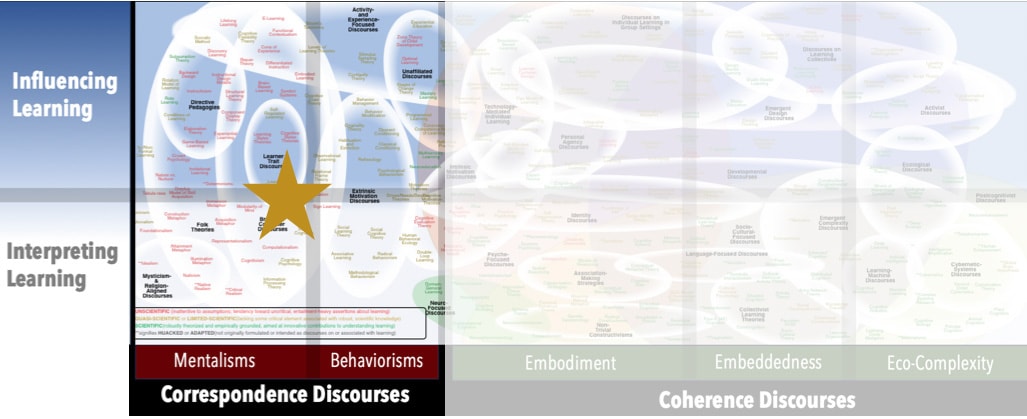Focus
Explaining why learners do what they do in terms of external influencesPrincipal Metaphors
- Knowledge is … a goal
- Knowing is … goal-attaining action
- Learner is … a seeker, striver
- Learning is … journeying, arriving at, reaching, progressing, accomplishing, achieving
- Teaching is … leading, guiding, directing, facilitating
Originated
Late-1800sSynopsis
Extrinsic Motivation Discourses focus on motivating influences that come from outside the learner. They include both external rewards (e.g., grades, certificates, praise, fame, money) and punishments (e.g., ridicule, pain, deprivation). The core principles are, firstly, that desirable actions can be encouraged through offering rewards and/or withholding punishments, and, secondly, that undesirable actions can be discouraged through withholding rewards and/or threatening punishments. Associated constructs and discourses include:- Externalisms – discourses in which it is assumed or asserted that one's justifications and motivations are largely determined by conditions external to the agent (Note: should not be confused with Externalisms of Socio-Cultural-Focused Discourses.)
- Incentive for Learning – an overt bribe or reward, offered to encourage activities associated with intended learning
- Matching Theory (R.J. Herrnstein, 1970s) – the proposal that agents allocate their behavior or time to available alternatives in proportion to the benefits (reinforcers) that they get from those alternatives
Commentary
Extrinsic Motivation Discourses are mostly closely aligned with Behaviorisms, which dominated educational research and practice for much of the early-20th century. Due in large part to the strength of this association, when Behaviorisms fell into disfavor for their reductive interpretation and manipulative strategies, all Extrinsic Motivation Discourses began to wane in popularity.Subdiscourses:
- Externalisms
- Incentive for Learning
- Matching Theory
Map Location

Please cite this article as:
Davis, B., & Francis, K. (2024). “Extrinsic Motivation Discourses” in Discourses on Learning in Education. https://learningdiscourses.com.
⇦ Back to Map
⇦ Back to List
